#Tenant representation services
Explore tagged Tumblr posts
Text
Why Pure Tenant Representation Delivers Superior Commercial Leasing Results
Discover why pure tenant representation delivers superior commercial leasing results. Expert advocacy ensures better terms, rates, and property selections.

#Tenant Representation#Tenant Representation Services#Tenant Representation Melbourne#Tenant Representative Melbourne#Commercial Tenant Representation
0 notes
Text
https://www.makan.com.qa/tenant-representation/
0 notes
Text

Atlanta Real Estate Brokers
Rely on Stratus Property Group and our team of experienced Atlanta real estate brokers for all your property needs!
#https://stratuspg.com/services/tenant-representation/#office space#office space in atlanta#atlanta office space#perfect office space#office space ideas#real estate broker#real estate market#rental trends#real estate brokerage#atlanta commercial office space#real estate property#atlanta real estate brokers#broker in atlanta#ideal office space#atlanta real estate#commercial real estate broker#commercial leasing agents#commercial real estate brokerages#Property Service#Stratus Property Group#stratuspg#stratuspg.com
0 notes
Text
Eviction Services In Martin County, Florida - Law Office of Ryan S. Shipp, PLLC
Martin County Eviction Lawyers Are you a landlord facing tenant issues in Martin County, Florida? Do you require legal assistance with residential or commercial evictions? Look no further than Law Office of Ryan S. Shipp, PLLC. Our experienced team concentrates our practice in navigating the complexities of landlord-tenant law and ensuring swift and effective resolution of your eviction…

View On WordPress
#commercial eviction services#eviction appeal lawyer#eviction attorney Martin County#eviction court representation#eviction hearing expert#eviction lawsuit assistance#eviction mediation services#eviction notice services#eviction process Martin County#fast eviction services#florida landlord rights#landlord lawyer Florida#landlord legal services Martin County#landlord-tenant court Florida#Law Office of Ryan S. Shipp#lease agreement violations#lease termination lawyer#Martin County property law#non-payment of rent lawyer#property damage claims#property management legal support#reliable eviction attorney#rent arrears attorney#renter eviction legal advice#residential eviction assistance#tenant dispute resolution#tenant eviction law#tenant law specialist#tenant removal legal help#unlawful detainer action Florida
0 notes
Text










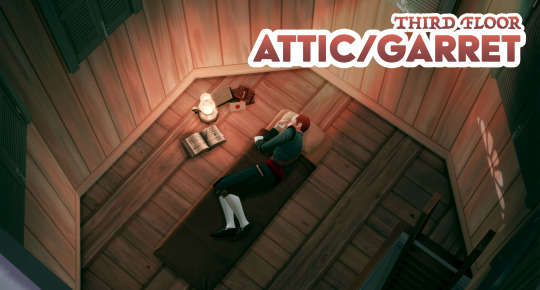


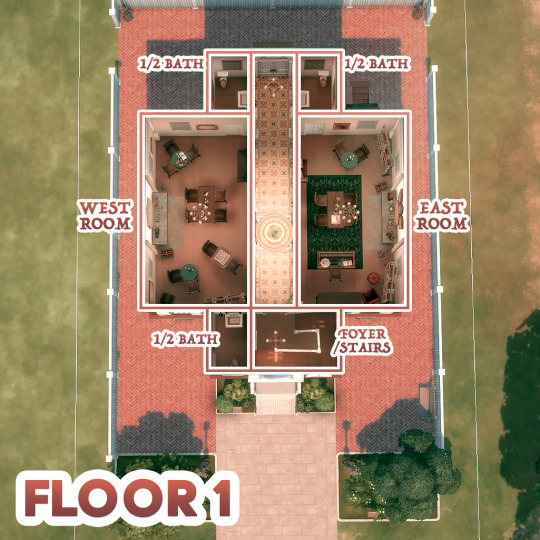
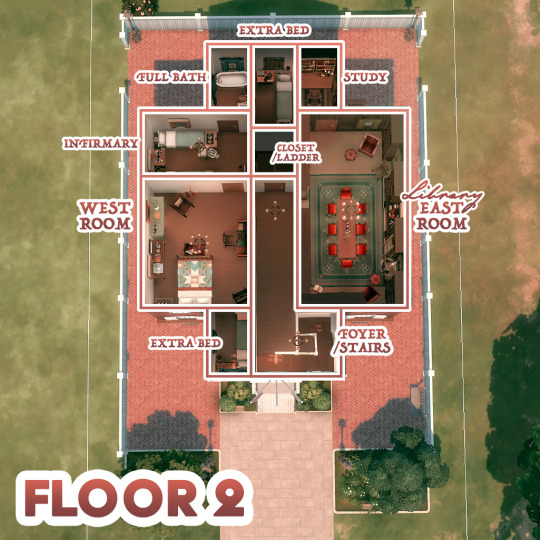
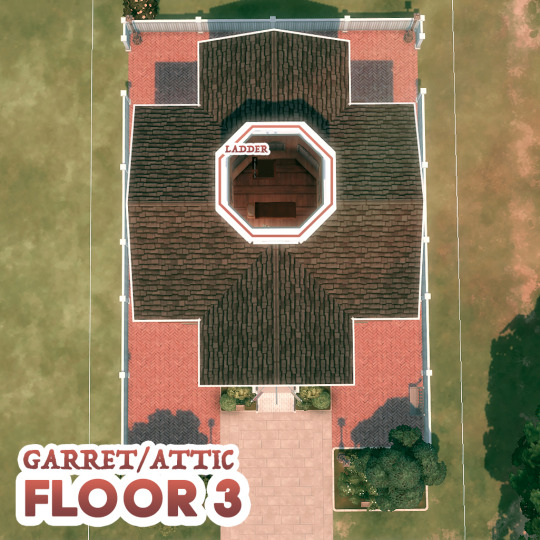

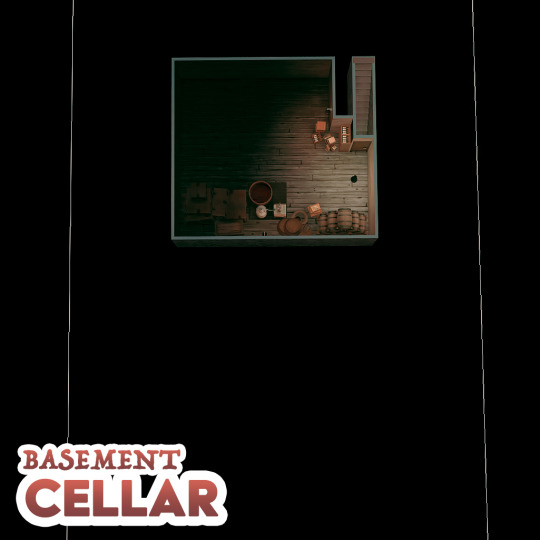
Carpenters' Hall - 30x20 (NO CC)
Carpenters' Hall in the Sims 4! Carpenters' Hall is a historic landmark - it hosted the First Continental Congress in 1774 and was home to Ben Franklin's Library Company, The American Philosophical Society, and the First Bank of the US (Source), just to name a few.
This building was historically used for different purposes, and its Rooms were rented out by different organizations. During the Revolutionary War, part of the first and second floor was used as a hospital. Ben Franklin's Library Company occupied the second floor until Dec 1791. The American Philosophical Society "rented the first floor West Room" from 1780-1789 (see the full timeline of Carpenters' Hall).
References: The official floorplans for the building are available here (Philadelphia Buildings and Architects). I referenced these floorplans alongside this essay on Carpenters' Hall by Charles E. Peterson (published in The American Philosophical Society's Transactions Vol. 43, Part I; accessed via the National Park Service archives), which includes written accounts of Carpenters' Hall as described by John Adams and others, and which ultimately served as my guide.
I tried to recreate Carpenters' Hall as it might've looked during the Revolutionary War, but because the building was undergoing changes during the War (i.e. its occupants, the state of the building itself), as well as the limitations of the game, this is not a completely accurate representation of Carpenters' Hall (see notes below cut).
This build combines some of the Hall's multifunctional purposes during the Revolutionary War: as a meeting place, infirmary, and Library. For some areas (i.e. the cellar, the garret/attic, etc; bathrooms are included for Sim functionality and gameplay), creative liberties were taken.
➜ download my TS4 builds: my EA ID is jhocaa / my TS4 builds
Notes:
I've placed tiles in the first floor hallway (the entire first floor of Carpenters' Hall is tiled), but those tiles were installed after the Civil War (Source) and likely would not have been there during the AmRevolution. I've included the tiles in the hallway in homage to this.
The first floor was, presumably, once partitioned by walls - to serve as rooms for tenants, such as The American Philosophical Society, who "rented the first floor West Room" - however, these walls no longer exist in the present day. You can see where walls once stood in these floorplan drawings of the first floor (indicated by the dotted lines).
There are many smaller rooms on the second floor (as seen in these floorplans) that are nondescript and could've been used simply as storage space. To represent the multifunctional purposes of Carpenters' Hall during the War, as well as to fit the gameplay needs of Sims, I turned them into functional spaces: infirmary, extra beds, full bath, study/desk room.
The library on the second floor (off-limits to the public) is based on the available photos on their website: carpentershall.org. This library, as seen in their photos, really belongs to The Carpenters' Company - and not Ben Franklin's Library Company. You can read more about the history of The Carpenters' Company library here. For the purposes of this build (and in-game), the library is one and the same.
The third floor (the attic space within the roof; the support beams, framework, etc) is omitted due to game constraints.
#amrev#18th century#carpenters hall#my builds#sims 4#sims 4 builds#historical#sims 4 historical#philadelphia#american revolution#american history#revolutionary war
64 notes
·
View notes
Text
aight i got some attention 😎 here's my thesis on classpects lol
ASPECTS:
- aspects in homestuck represent a fundamental part (or "aspect") of the universe. each aspect is a building block that, when used in combination with the other aspects, creates the universe as we (or the players) know it. the aspects primarily work in distinct pairs to create six fundamental tenants of the universe. three of these tenants exist on a more cosmic scale, and the remaining three exist on a personal scale. additionally, within each pair of aspects, there is one aspect that serves as an expanding, limitless concept with large amounts of potential; the other aspect in the pair serves to limit and guide the first with a much more concrete definition and power. (note: this is not to say the limitless aspect has more power or is stronger than the limiting aspect; there is power in limiting as well, and the broadness of the limitless aspects can make them difficult to interpret and utilize. no aspect is more important or powerful than another)
- the cosmic tenants are those that relate to paradox space, fate, the timeline, and the universe. these aspects exist on a grander scale than the personal aspects, but conversely they have little to do with actual people/players and their relationships and emotions. players that act in service to a cosmic aspect can find themselves limited in personal development; whereas those that rebel against the cosmic aspect assigned to them may find themselves personally fulfilled, but less effective in matters that the game deems important. the cosmic aspects are void/light, mind/doom, and space/time. (note that these six aspects all have symbols that are roughly circular in shape and are symetrical in at least one direction, often more than one direction.)
- VOID/LIGHT: this aspect pair deals with the tenant of CHAOS AND ORDER. void is the limitless aspect of nothingness; it is the chaos through which every concept might exist, but through the contradictory overlap it is meaningless. light limits void by giving it order, picking through the infinite possibilities and finding the one true path with meaning, creating a narrative. void and light also have associations with luck; while void represents the statistical inevitability that anything that could exist does, somewhere, light represents the infintessimal chances that any given possibility actually DOES exist in the reality the players exist in. light has a tendency to try to make things 'work out the way they should;' light players have an association with heroism and narrative satisfaction; they can seem more like characters in a story than any other players and tend to feel something is 'off' if things don't work out the way they 'should.' conversely, void has the capacity to understand that anything is possible; void players have incredible capacity to 'roll with the punches' as nothing can really surprise them, but they can veer towards nihilism and depression if they conclude 'nothing matters.' void and light are represented in a more literal sense by darkness and space (void) or brightness and sources of light (light); players that are more literal minded may end up with abilities relating to these representations, such as a prince of light being able to remove all light from an area to allow stealth attacks.
- MIND/DOOM: this aspect pair deals with the tenant of CHOICE AND FATE. mind is the limitless aspect of choices; it is the existence of every possible branching reality, brought upon by every individual choice that might be made. doom limits mind by definining the alpha timeline as the one that is 'real;' all other branches are 'doomed.' this does not mean they are meaningless, especially since doomed timelines frequently interact with the alpha timeline; it simply means the events in these timelines are not the ones fated to happen by paradox space. mind represents a player's free will, stating that their actions have distinct consequences; 'we make our own luck.' doom represents the determinism inherent to paradox space, stating that actions exist for the benefit of the alpha timeline; 'we've been doomed from the start.' doom players have a tendency to see the world in black and white, all in absolutes with no nuance; things are the way they are because thats the way they are. they may also tend to stagnate because of this; they accept things as unchangeable and are less motivated to action at times. conversely, mind players tend to take matters into their own hands; they see every outcome as something they are personally responsible for and can be extremely motivated to take decisive action. on the other hand, a mind player might find this responsibility overwhelming, while a doom player might find the predetermination freeing; it depends on the player's disposition. literal representations of these aspects include brains and dice/coins/any tool for random chance (mind) or death/decay and fire (doom); literal minded players may develop powers relating to these representations as well, such as a sylph of mind becoming able to heal someone from brain damage or mental impairment/inhibitors
- SPACE/TIME: this aspect pair deals with the tenant of BEGINNINGS AND ENDINGS. space creates limitlessly, ever expanding with dominion over all life, objects, locations, etc in existence; it sets the stage for all creation. time defines the ways life, objects, etc play out and brings them all to their proper resting point; it cleans up after space and closes chapters on space's creations. these aspects in particular and the cyclical way they interact with one another in paradox space are the most relevant aspects to the game of sburb/sgrub, because the goal of the game is to create a new universe, which lies heavily in space's domain, and it executes this goal through the paradoxical creation of players who are capable of playing the game as required, which is only possible through close association with time. this is why sessions without a space player are doomed to fail (especially considering the frog must be bred on a space player's planet) and sessions without a time player have an extremely low chance of success (the time player takes the role of making sure all loops are closed as they should be, and is naturally predisposed to clean up after paradox space). time players have strong associations with endings, particularly death, and tend to see things from the perspective of the end result. they may veer towards nihilism or determinism through this perspective, or they may find a sense of peace through knowing how things will play out in advance. conversely, space players have strong associations with beginnings, particularly birth and growth. they have the perspective of the starting potential, and may be optimistic about all the possibilities open to them, or they may be anxious from the potential ways things might go wrong. literal representations of these aspects include frogs, plants, and matter (space) or gears, corpses, and clocks (time) and more literally minded players may develop powers related to these manifestations, such as thief of time physically turning back the hands of a clock to travel backwards in time
- the personal aspects deal much more primarily with the matters of players and individuals, and players with these aspects are rewarded for developing their personal life and conversely not as poweful if they focus too much on the fate of the game and paradox space itself. each pair of personal aspects is directly parallel to a pair of cosmic aspects, they just deal with matters on a different scale. the personal aspect pairs are RAGE/HOPE (parallel to void and light), HEART/LIFE (parallel to mind and doom), and BREATH/BLOOD (parallel to space and time).
- RAGE/HOPE: this aspect pair deals with the core tenant of INSTINCT and PHILOSOPHY. rage is the aspect dealing with base, instinctual emotions and reactions, tied closely with behaviors in one's pure self interest, without trust in others and community. hope is the aspect dealing with enlightened thought, faith, and heroism; it surpasses rage's instincts by presenting lofty ideals for people to believe in, and produces heroes and strength for light's narrative. rage inspires fear in the isolated; hope inspires strength in the community. these aspects represent two schools of thought in the philosophy behind peoples' behaviors; rage insisting we are ruled by our instincts and the needs of our bodies, and hope insisting we have evolved beyond that and are ruled by thought, which can overcome those instincts. both philosophies have a degree of truth to them and combine to explain general human (or inhuman, depending on the player) nature, despite their contradictions. hope players have a strong connection to the narrative of the hero's journey (or, depending on their alignment, the villain's journey), though they are much less likely to be cognizant of this than light players. they deal with grandeur and lofty ideals about life and purpose, and can be either inspired by or overwhelmed by this, often feeling pressure to 'be a good person.' conversely, rage players have a strong connection to base emotion; they are good at finding core emotions that drive us and the fundamental feelings behind instinctual reactions. they deal with the innate, rather than the cerebral; some may find peace in their understanding of these subconcious emotions, while others may feel disturbed by the idea that they are controlled by their feelings alone and overwhelmed by this connection. literal representations of these aspects include angels and light (hope) or clowns and darkness (rage), and more literal minded players may develop powers related to these physical manifestations, such as a witch of hope summoning and controlling angels to fight for them
- HEART/LIFE: this aspect pair deals with the core tenant of SOUL AND BODY. heart is the aspect dealing with the essence of who a person is, including constants across all iterations of the person as well as their limitless potential to change across different iterations. mind represents all possible choices that can be made to influence reality, while heart represents the possible results of those choices on a single person. life is the aspect dealing with the physical and limited form that a soul inhabits; it represents the defined, exact iteration of a person in this reality and the form they take. the body (including the specific circumstances that create this body) houses the soul and limits it to one instance of a person, but the body without a soul is worthless. life players can (depending on their class), however, heal and raise the dead by reminding the body of the soul it previously held and reforging that connection. life players have a tendency to feel strong connections to their own sense of self, and can show strong confidence in their own actions; alternatively, they can feel overwhelmed by the limitations of the body they are 'trapped' in and feel as though they cannot break out of bad habits. conversely, heart players can feel overwhelmed by the enormity of their understanding of themselves, and their personal iteration of themselves can feel dwarfed by the possibilities of what they could have been; alternatively, they could also feel empowered by these alternatives and their ability to change themselves to better suit their goals and ideals. physical representations of these aspects include literal hearts and energy (heart) or plants and other forms of life (life); more literal minded players may develop powers related to these representations, such as an heir of life finding their enemies strangled by plant life.
- BREATH/BLOOD: this aspect pair deals with the core tenant of INDEPENDENCE AND COMMUNITY. breath is the aspect dealing with freedom, a disconnect from worldly and personal ties to focus on one's self. it has associations with the limitless ideals of nirvana, of removing one's self from others to achieve personal enlightenment, without the distraction of connections. blood is the aspect dealing with connections and relationships, choosing to focus more on the team or community as a whole than one's self. it utilizes connections with others to achieve social fulfillment, locking away personal freedoms for the opportunity to interact with others and creating strong social power. blood players are very often the best among all other aspects at helping other players work together towards a common goal. they are good at leadership, as long as they have and understand a goal; however, they are more focused on the team itself than the actual goals and may become lost if teamwork is not necessarily the priority. conversely, breath players are not generally good at working with a team, preferring to forge their own path, but their commitment to freedom and individuality can in itself be very inspiring to those who watch them, and they may be considered leaders in their own right (though a breath player would never consider themselves a true leader). these two aspects are not any more or less important than other aspects; however, due to the cooperative nature of the game and the game's focus on individual fulfillment and growth for the players, the aspects are strongly related to the themes of the game from the players' point of view, and as such blood and breath players are often held in high regard by others (though there are exceptions to this. it depends how commited the players are to realizing their aspect, and how contrary their non breath/blood teammates feel). physical representations of these aspects include wind, air, and literal breath (breath) or vows, family, and literal blood (blood); more literal minded players may develop powers related to these manifestations, such as a thief of blood having the ability to drain all the blood from an enemy's body.
CLASSES:
- unlike aspects, classes in homestuck deal entirely with the personal and not at all with the cosmic scale. a player's class represents how they interact with their aspect (broadly, in a constructive or destructive way), as well as whether they are benefited more by using their aspect power for themselves (active) or for others (passive). the classes are divided into 7 active and passive pairs, and both classes within a pair interacts with the aspect in a very similar way, but with the purpose of meeting a different goal depending on which side of the active/passive scale the class falls upon. these pairs are divided into three sets of contructively aligned classes, three sets of destructively aligned classes, and one pair that has ultimate control, both constructive and destructive. this exception is, of course, the master classes (lord and muse). it is this pair we will discuss first.
- LORD (-)/MUSE (+): this class pair interacts with their aspects using ULTIMATE CONTROL. unlike all other classes, lords and muses can both create and destroy their aspect and representations of their aspect, and have very few limitations to their connection with the aspect. the limitations that do exist lie within the differences between the two classes. the lord is purely an active class, and can bend their aspect to their will, and their will alone. they will struggle greatly with using their aspect to benefit others, but they will likely not feel compelled to do so in the first place. conversely, the muse is a purely passive class, and can only inspire their aspect to act in ways that benefit others. they, too, are capable of great power, but this power often comes at great personal sacrifice and they must rely on others to defend and protect them. however, by aligning yourself with a muse, you will have acess to great power frorm their aspect; their aspect will help you with your goals, so long as the muse feels as though they can place their trust in you.
- the destructively aligned classes associate their aspect with destruction in some way, whether that is by directly destroying the aspect, or using the aspect to destroy other things. the three pairs of destructive classes are prince/bard, thief/rogue, and page/knight.
- PRINCE (-)/BARD (+): this class pair interacts with their aspects using PURE DESTRUCTION. they are both often surrounded by their aspect in some way, and perhaps overwhelmed by it, and can find great power in destroying it or using it for destruction. the prince, as an active class, directly destroys their aspect in a desire to feel control over it, and must balance this with the power their aspect grants them when it is in abundance around them. too little of the aspect, and they have nothing left to control and use; too much of the aspect, and the aspect uncontrollably overwhelms them. the bard, as a passive class, invites destruction through their aspect, inspiring rather than controlling directly. their presence in a group must also be balanced; given too much influence, the bard's power could destroy everything around them uncontrollably, but with too little influence, the bard is supressed and unhelpful.
- THIEF (-)/ROGUE (+): this class pair interacts with their aspects by REMOVING AND RELOCATING. they both may feel a lack of their aspect around them, and cannot create it themselves; they must take it from others instead. both are also especially adept at turning the intangible concepts behind the aspect into something quantifiable and real. the thief, as the active class, draws their aspect to work for themself vampirically, taking representations of it exclusively from others to benefit themself. they are able to precisely control their powers and understand them implicitly. the rogue, as the passive class, struggles more with their understanding of their powers, and cannot control them as well, especially if they feel as though they are attempting to take their aspect for their own benefit alone. however, if they have a robin hood-esque motivation to rebalance their aspect and help their friends, they are capable of similar things as thieves.
- PAGE (-)/KNIGHT (+): this class pair interacts with their aspects by WIELDING them as a WEAPON. they both draw great power from their aspect and can channel it to great destructive force. the page, as the active class, is capable of channeling and controlling huge amounts of their aspect as raw power. however, this power is only accessible if the page desires it for themself; they are often predisposed to let their desires sit by the wayside and can feel lots of pressure from others to achieve their true potential, and that pressure can make it possible for a page to awaken their true power. the knight, as the passive class, can also wield their aspect as a powerful weapon, but their skills are most effective in helping or protecting others. the aspect is not kind to the knight themself, and often great power for the knight comes at great personal sacrifice.
- the creatively aligned classes associate their aspects with creation in some way, whether that is by directly creating the aspect or using the aspect to create other things. the three pairs of creatively aligned classes are maid/seer, witch/sylph, and heir/mage.
- MAID (-)/SEER (+): this class pair interacts with their aspects by COMPLETE UNDERSTANDING. they both have an innate connection to and knowledge of their aspect and can channel that information towards constructive purposes. the maid, as an active class, works in service of the aspect completely in exchange for dominion over the aspect itself; they become 'made' of their aspect. they have a fundamental understanding of the aspect that cannot be compared to another class's relationship with the same aspect, and can use that knowledge to their own great benefit. the seer, as a passive class, uses their aspect as a conduit to better understand the actions and paths they and their party must take for ultimate victory. while many seers are predisposed to work alone, their skills are much better utilized to guide others in the use of their own skills, and they are rewarded for taking an advisory position instead.
- WITCH (-)/SYLPH (+): this aspect pair interacts with their aspects by MANIPULATION AND CREATIVITY. they, like thieves and rogues, can take hold of conceptual ideas of how an aspect works, and can bend the aspect to their own will. a witch, as the active class, has incredible control over the aspect and creatively uses it to mold an optimal reality. however, their manual control over their aspect can sometimes lead to catastrophic mistakes if they are not careful. the sylph, as a passive class, struggles to reach this same level of control, but if properly motivated by the desire to help those around them, they can achieve similar abilities as a witch, albiet in a more roundabout way. the sylph in particular is drawn towards healing, and a sylph of ANY aspect might find a creative way to justify that power.
- HEIR (-)/MAGE (+): this aspect pair interacts with their aspects by PURE CREATION. they both manifest their aspect around them in abundance, conciously or not. the heir, as the active class, will find that their aspect protects and serves them, initially without concious control on the heir's part. they are beloved by their aspect and can wield it freely. the mage, as the passive class, is also surrounded by their aspect; however, the aspect is more aligned to helping those around the mage than the mage themselves. the mage can find benefit from this by surrounding themselves with friends; surrounding themselves with enemies will lead more towards detriment.
#it me#homestuck#classpecting#the fundamental thing im trying to do here is promote symmetry and elegance in how the classes and aspects interact#im basing a lot of this on what alt callie says towards the end of the comic about paradox space and reality and just. extrapolating#if u have questions plz lmk and ill talk more about this!#ftr 'i think a different method is better' is not a question lol
17 notes
·
View notes
Note
Agape 4 - Does your OC have a religious faith which emphasises the importance of a love for all people? If so then do they try to follow these teachings authentically? Or do they just pay lip-service to them? If not then do they follow a more martial or mercantile faith? Or none at all?
Philautia 5 - Has your OC always had the same opinion of themselves or has this changed over time? Have they learned to love themselves - perhaps with the help of others - as their journey progressed? Or have the consequences of their actions only served to erode their sense of self-worth?
Dusk's love for his fellow man isn't religiously motivated at all, when you get down to it. His religious beliefs are kind of a mess, to be honest. He nominally still worships Halone, because some of the cultural aspects of that are really hard to shake, especially when most of your family still worships Her in earnest. Organized religion makes him skittish, though, what with Ishgard having been all ... Ishgard.
Obviously She is a martial goddess, and it's hard to deny that is ... probably the goddess whose protection he could use when he's adventuring. Not that he usually asks for it. While he can squint and see love in some of Halone's tenants and such, it's not the focus, and he'd like to stop thinking about religion at all now please.
The other question is a thinky one ... I think Dusk's opinion of himself has been fairly steady over the years. He was a lot less confident as a child and a teenager, but that's pretty normal, and he's been an adult long enough (he's pushing 40) that any of that sort of uncertainty has long since been discarded.
While he sometimes has trouble forgiving himself, even when he was at his worst and manifesting corporeal representations of his guilt, he never tipped into actual self-loathing. He wouldn't go around telling people he's a good person, but he does like himself, and he's very confident in his ability to Fix Things now.
Thank you for the asks!
#ask and i will answer#he's probably due for another rude awakening on the fixing things front to be honest#but who knows if one will ever happen!
7 notes
·
View notes
Text
Addressing Housing Disrepair: Ensuring Safe and Healthy Homes

If you have ever experienced issues like leaking roofs, faulty heating systems, or mold infestations in your rented accommodation, you are not alone. Housing disrepair is a prevalent problem that affects millions of tenants worldwide, leading to various health, safety, and financial concerns. In this article, we delve into the intricacies of housing disrepair, its causes, impacts, legal rights of tenants, and measures to address and prevent such issues.
Introduction to Housing Disrepair
Housing disrepair refers to the state of a property that has fallen into a state of neglect or deterioration due to the failure of the landlord to maintain it adequately. This can encompass a wide range of issues, including structural defects, dampness, pest infestations, electrical faults, and plumbing problems. While some landlords promptly address maintenance issues, others may neglect their responsibilities, leaving tenants to live in substandard conditions.
Common Causes of Housing Disrepair

Several factors can contribute to housing disrepair, including poor construction, lack of regular maintenance, and environmental factors such as extreme weather conditions. Structural issues like cracked walls, unstable foundations, and leaking roofs are often the result of long-term neglect. Damp and mold thrive in poorly ventilated or damp environments, posing health risks to occupants. Plumbing and heating problems, such as burst pipes and malfunctioning boilers, can disrupt daily life and compromise safety.
Impact of Housing Disrepair
The consequences of living in a property with disrepair issues extend beyond mere inconvenience. Chronic exposure to dampness and mold can exacerbate respiratory conditions like asthma and allergies, leading to respiratory infections and other health problems. Additionally, living in substandard conditions can take a toll on mental well-being, causing stress, anxiety, and depression. Moreover, tenants may incur additional expenses for temporary accommodation or medical treatment, further exacerbating their financial strain.
Legal Rights of Tenants

Tenants have legal rights regarding housing disrepair, and landlords are obligated to maintain their properties to a certain standard. In the UK, the Landlord and Tenant Act 1985 outlines the landlord's responsibilities, including ensuring the property is safe, structurally sound, and free from hazards. Tenants have the right to request repairs in writing and, if necessary, take legal action to enforce their rights. Options include contacting local housing authorities, seeking assistance from legal aid services, or pursuing compensation through the courts.
Steps to Take When Facing Housing Disrepair
If you encounter housing disrepair issues in your rented accommodation, it's essential to take action promptly. Start by reporting the problem to your landlord or letting agent in writing, providing details of the issue and requesting repairs within a reasonable timeframe. Keep records of all communications, including photographs or videos of the disrepair, as evidence. If the landlord fails to address the issue, seek advice from a housing solicitor or advocacy organization to explore your legal options.
Resources Available for Tenants
Fortunately, tenants have access to various resources and support services to assist them in dealing with housing disrepair issues. Local housing authorities can provide guidance on tenants' rights and mediation services to resolve disputes between landlords and tenants. Legal aid services offer free or low-cost legal advice and representation to individuals facing housing-related issues. Additionally, community organizations and charities may offer practical support, advocacy, and educational programs to empower tenants.
Preventive Measures
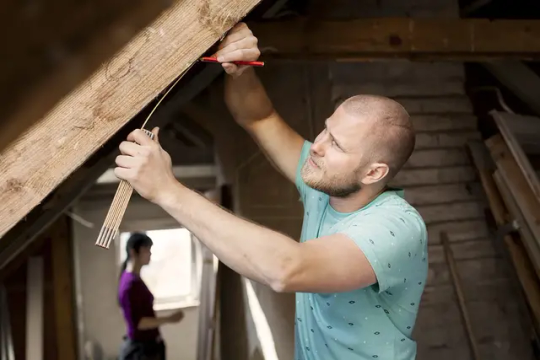
Prevention is key to avoiding housing disrepair issues in the first place. Tenants can protect themselves by conducting regular inspections of their rental properties and promptly reporting any maintenance concerns to the landlord. Familiarize yourself with your tenancy agreement and understand your rights and responsibilities regarding property maintenance. By taking proactive measures and addressing minor issues early on, you can prevent larger problems from developing and ensure a safe and habitable living environment.
Conclusion
Housing disrepair is a significant issue that can have far-reaching consequences for tenants' health, safety, and well-being. By understanding their legal rights, seeking appropriate assistance, and taking proactive measures, tenants can effectively address and prevent housing disrepair issues. It is crucial for landlords, policymakers, and community stakeholders to collaborate in ensuring that all residents have access to safe, healthy, and adequately maintained housing.
FAQs
What are the landlord's responsibilities regarding housing disrepair? Landlords are responsible for maintaining their properties in a safe and habitable condition, including addressing any disrepair issues promptly.
How long does a landlord have to make repairs? Landlords should address repair requests within a reasonable timeframe, typically within 14 to 30 days, depending on the severity of the issue.
Can tenants withhold rent if repairs are not made? In some cases, tenants may be able to withhold rent or deduct the cost of repairs from their rent if the landlord fails to address the issue within a reasonable timeframe.
What if the landlord refuses to make repairs? If the landlord refuses to make necessary repairs, tenants can seek legal advice and explore options such as contacting local housing authorities or taking legal action.
#housing crisis#law firm#legal advice#legal services#business#blog#solicitor#lawyer#self help#self care#relationship quotes#inspiring quotes#uk#trending
2 notes
·
View notes
Text
Attorneys In Utah
When seeking attorneys in Utah, consider Jeremy Eveland for versatile legal services. Eveland Law Firm covers business consulting, property disputes, estate planning, criminal defense, and intellectual property law. Top areas of practice include business law, family law, personal injury, estate planning, and criminal defense. Choosing the right attorney involves evaluating qualifications, track record, and effective communication. Understanding Utah laws, legal representation importance, and professionalism among attorneys are key factors. Client testimonials and reviews provide insight, and considering legal fees is important. Jeremy Eveland's experience offers peace of mind. Explore further for thorough legal assistance in Utah.
Key Takeaways
Jeremy Eveland offers versatile legal assistance in Utah.
Consider attorney qualifications and experience matching case requirements.
Utah follows a common law legal system influenced by statutes and precedents.
Skilled legal representation influences legal proceedings' outcomes.
Client satisfaction and testimonials offer valuable insight into an attorney's effectiveness.
Legal Services Offered in Utah
When looking for legal services in Utah, attorney Jeremy Eveland stands out as a versatile and experienced professional offering a wide range of legal assistance to business owners and individuals. Eveland Law Firm provides thorough business consulting services to help navigate the intricate legal landscape of corporate law. Whether you are starting a new business, negotiating contracts, or seeking legal advice on business operations, Jeremy Eveland can offer tailored solutions to meet your specific needs.
In addition to business consulting, Jeremy Eveland is well-versed in handling property disputes. Whether you are dealing with boundary disagreements, landlord-tenant issues, or real estate transactions, Eveland Law Firm can provide expert guidance to resolve conflicts efficiently and effectively.
Estate planning is another area of experience for attorney Jeremy Eveland. From drafting wills and trusts to establishing powers of attorney and healthcare directives, Eveland can assist individuals in creating a detailed estate plan that aligns with their wishes and protects their assets for future generations.
Furthermore, Jeremy Eveland offers strong representation in criminal defense matters. If you are facing criminal charges, Eveland Law Firm can provide strategic defense strategies to protect your rights and achieve the best possible outcome in your case.
Lastly, Eveland Law Firm focuses in intellectual property law, assisting clients in protecting their creations, inventions, and innovations through patents, trademarks, and copyrights. Whether you need to secure your intellectual property rights or defend against infringement claims, Jeremy Eveland has the knowledge and experience to guide you through the legal process.
Top Areas of Practice
Attorney Jeremy Eveland excels in a diverse array of legal areas, including Business Law, Family Law, Personal Injury, Estate Planning, and Criminal Defense. In Business Law, he assists clients with a wide range of corporate legal matters, such as contract drafting, business formations, and compliance issues. When it comes to Family Law, Jeremy Eveland provides compassionate representation in cases involving divorce, child custody, and support agreements.
Moreover, in Personal Injury cases, he fights diligently to secure fair compensation for those injured due to others' negligence. Jeremy Eveland's experience in Estate Planning ensures that clients' assets are safeguarded and their wishes are carried out through meticulous planning. Additionally, his proficiency in Criminal Defense allows him to advocate for clients facing criminal charges with vigor and dedication.
With a thorough understanding of the legal landscape, Jeremy Eveland navigates complex legal issues with finesse and skill. Whether it's resolving disputes, drafting legal documents, or representing clients in court, his dedication to achieving favorable outcomes is unwavering. Clients can trust Jeremy Eveland to provide sound legal advice and steadfast support in their times of need.
Finding the Right Attorney
Exploring the legal terrain can be challenging, especially when faced with the task of finding the right legal representation for your specific needs. When it comes to lawyer selection, it's important to take into account attorney qualifications. Look for an attorney with the legal experience that aligns with your case requirements. Evaluating an attorney's track record and experience in handling cases similar to yours can provide valuable insights into their capabilities.
Case evaluation is another essential aspect of finding the right attorney. A competent lawyer should be able to analyze your situation thoroughly, provide an honest evaluation of your case, and outline potential strategies moving forward. Effective client communication is key in the attorney-client relationship. A good attorney should be able to explain legal concepts clearly, keep you informed about the progress of your case, and promptly address your concerns.
Understanding Utah Laws
Understanding the legal landscape of Utah can be a critical step in managing your legal needs efficiently and effectively. Utah's legal system is based on statutory laws, case precedents, and judicial decisions, all of which shape court procedures and outcomes. Here is a brief overview of key aspects of Utah laws:
Keyword Description Legal system Utah follows a common law legal system influenced by statutes and precedents Court procedures Courts in Utah follow specific rules and processes for civil and criminal cases Statutory laws Laws enacted by the Utah State Legislature that govern various legal matters Case precedents Prior legal decisions that guide current case outcomes and interpretations Judicial decisions Rulings made by judges in courts that set legal standards and interpretations
Understanding these elements can help you navigate legal challenges in Utah more effectively. Familiarizing yourself with the legal system, court procedures, statutory laws, case precedents, and judicial decisions can empower you to make informed decisions and better understand the complexities of the legal environment in Utah. Whether you are facing a civil dispute, criminal charges, or seeking legal advice, having a foundational understanding of Utah laws can be advantageous.
Importance of Legal Representation
The presence of skilled legal representation can greatly influence the outcome of legal proceedings in Utah. Legal experience plays an essential role in maneuvering through the complex legal system, ensuring that your rights are protected and advocating for your best interests. Attorneys with a deep understanding of Utah laws and regulations can provide you with the guidance needed to make informed decisions throughout your case.
Courtroom experience is important when facing legal challenges in Utah. An attorney who has spent time in the courtroom understands the dynamics of litigation, knows how to present a compelling case, and can anticipate and counter arguments from the opposing side. This experience can be invaluable in securing a favorable outcome in your legal matter.
Crafting a solid case strategy is another key aspect of effective legal representation. A skilled attorney will assess the details of your situation, identify strengths and weaknesses, and develop a strategic plan to achieve your goals. This tailored approach can make a significant difference in the outcome of your case.
Client advocacy is at the core of legal representation. A dedicated attorney will zealously represent your interests, ensuring that your voice is heard and your rights are protected. Knowing that you have a knowledgeable advocate fighting for you can provide peace of mind during a challenging legal process.
Utah Attorneys' Professionalism
When seeking legal representation in Utah, professionalism among attorneys is paramount for guaranteeing a smooth and effective legal process. Expert advice, trustworthy counsel, ethical guidance, a professional demeanor, and experience all play important roles in the professionalism of Utah attorneys.
Utah attorneys are known for providing expert advice in various legal matters. Whether it's corporate law, real estate law, estate planning, or criminal defense, a professional attorney in Utah can offer valuable insights and recommendations tailored to your specific needs. Trustworthy counsel is another cornerstone of professionalism among Utah attorneys. Clients rely on their attorneys to act in their best interests and uphold ethical standards while managing complex legal issues. Ethical guidance is vital in maintaining the integrity of the legal profession and building trust with clients.
A professional demeanor is essential for attorneys in Utah to effectively represent their clients. This includes clear communication, respect for all parties involved, and a commitment to upholding the law. Experience matters significantly when it comes to handling legal matters competently and efficiently. Utah attorneys with years of practice have honed their skills and are better equipped to deal with challenging legal situations. To summarize, professionalism is a key attribute to look for when choosing an attorney in Utah, as it ensures that your legal needs are met with experience, trustworthiness, and ethical conduct.
Client Testimonials and Reviews
Seeking legal representation in Utah requires considering the experiences and feedback shared by clients through testimonials and reviews. Client satisfaction and success stories play an important role in understanding an attorney's capabilities. Testimonials and online reviews can provide valuable insight into an attorney's effectiveness and how they handle cases, giving you an idea of what to expect. Trustworthy recommendations from past clients can also be influential in making your decision, as word of mouth is a powerful tool in evaluating an attorney's reputation.
When reading client testimonials and reviews, pay close attention to the experiences shared. Look for mentions of case outcomes and how the attorney helped clients navigate legal challenges. Positive feedback highlighting an attorney's credibility and successful representation can instill confidence in their abilities to handle your case effectively.
Furthermore, success stories shared by clients can give you a glimpse into the attorney's track record and their approach to handling various legal matters. By analyzing client experiences and feedback, you can make a more informed decision when selecting an attorney in Utah. Remember, the opinions and experiences of past clients can provide valuable insights into an attorney's professionalism and effectiveness.
Legal Fees and Affordability
Considering legal fees and affordability when selecting an attorney is vital for effective decision-making. When evaluating attorneys in Utah, it's important to explore the various fee structures they offer to make sure you find cost-effective solutions that align with your budget. Look for attorneys like Jeremy Eveland who provide affordable options and budget-friendly services without compromising on quality. Pricing transparency is key, so make sure the attorney you choose clearly outlines their fees and any additional costs upfront to avoid any surprises later on.
Some attorneys may offer flat fees for certain services, hourly rates for others, or contingency fees for specific cases like personal injury or car accidents. Understanding the fee structure will help you assess the overall cost and determine if the attorney's services are within your budget. Jeremy Eveland is known for his transparent pricing and commitment to providing clients with fair and affordable legal representation across various practice areas, including corporate law, estate planning, family law, and criminal defense.
Conclusion and Next Steps
To make an informed decision regarding legal representation, it is essential to assess your specific needs and consider how attorney Jeremy Eveland's diverse experience aligns with your requirements. Jeremy Eveland's wide range of practice areas, including corporate law, real estate law, estate planning, probate law, divorce, child custody, criminal cases, intellectual property law, and more, offers a thorough approach to addressing various legal matters. When contemplating your decision-making process, it is vital to weigh the importance of experience, experience, and a track record of successful outcomes, all of which attorney Eveland possesses.
As you think about future considerations, remember that having a skilled attorney like Jeremy Eveland on your side can provide you with the peace of mind that comes from knowing your legal affairs are in capable hands. By moving forward with attorney Eveland, you can rest assured that your legal needs will be handled with professionalism and dedication.
Frequently Asked Questions
How Does Jeremy Eveland Stand Out From Other Attorneys in Utah?
When considering legal experience, client satisfaction, a personalized approach, strong advocacy, and proven results, Jeremy Eveland shines among attorneys in Utah. His dedication to guiding businesses and individuals through various legal matters like corporate law, real estate, estate planning, divorce, and criminal cases sets him apart. With a focus on personalized care and proven success, Jeremy Eveland stands out as a top choice for legal representation in Utah.
What Types of Cases Does Jeremy Eveland Focus On?
When it comes to legal matters, Jeremy Eveland focuses on a wide range of cases. He focuses on family law, criminal defense, personal injury, estate planning, business law, immigration cases, civil litigation, real estate disputes, employment law (for employers only), and contract negotiations. With his experience and experience, he can provide you with the legal assistance you need in these various areas. Consider choosing Jeremy Eveland for your legal needs in Utah.
Can Jeremy Eveland Provide References From Past Clients?
When considering references from past clients, Jeremy Eveland can provide client testimonials, professional recommendations, and case outcomes to showcase his legal experience and success. His approach combines strategic legal tactics with client satisfaction surveys to guarantee a thorough understanding of each case. By offering a transparent view of his work through these references, Jeremy Eveland demonstrates his commitment to delivering quality legal services and positive outcomes for his clients.
What Is Jeremy Eveland's Success Rate in Court Cases?
When considering Jeremy Eveland's success rate in court cases, you'll find his legal strategies and courtroom tactics to be excellent. His case analysis and trial experience contribute to his impressive litigation track record and settlement outcomes. Clients appreciate his negotiation skills and legal experience, leading to high levels of satisfaction. Jeremy Eveland's success rate in court cases is a proof of his dedication and effectiveness as an attorney.
How Does Jeremy Eveland Approach Client Communication and Updates?
When it comes to client communication and updates, Jeremy Eveland guarantees client satisfaction by maintaining transparent processes. Through his effective communication strategies and regular updates, he builds trust with his clients. This approach not only keeps clients informed but also reassures them throughout the legal process. By prioritizing clear and open communication, Jeremy Eveland establishes a strong foundation for a successful attorney-client relationship.
Areas We Serve in Utah
We serve individuals and businesses in the following Utah locations:
Salt Lake City Utah West Valley City Utah Provo Utah West Jordan Utah Orem Utah Sandy Utah Ogden Utah St. George Utah Layton Utah South Jordan Utah Lehi Utah Millcreek Utah Taylorsville Utah Logan Utah Murray Utah Draper Utah Bountiful Utah Riverton Utah Herriman Utah Spanish Fork Utah Roy Utah Pleasant Grove Utah Kearns Utah Tooele Utah Cottonwood Heights Utah Midvale Utah Springville Utah Eagle Mountain Utah Cedar City Utah Kaysville Utah Clearfield Utah Holladay Utah American Fork Utah Syracuse Utah Saratoga Springs Utah Magna Utah Washington Utah South Salt Lake Utah Farmington Utah Clinton Utah North Salt Lake Utah Payson Utah North Ogden Utah Brigham City Utah Highland Utah Centerville Utah Hurricane Utah South Ogden Utah Heber Utah West Haven Utah Bluffdale Utah Santaquin Utah Smithfield Utah Woods Cross Utah Grantsville Utah Lindon Utah North Logan Utah West Point Utah Vernal Utah Alpine Utah Cedar Hills Utah Pleasant View Utah Mapleton Utah Stansbury Par Utah Washington Terrace Utah Riverdale Utah Hooper Utah Tremonton Utah Ivins Utah Park City Utah Price Utah Hyrum Utah Summit Park Utah Salem Utah Richfield Utah Santa Clara Utah Providence Utah South Weber Utah Vineyard Utah Ephraim Utah Roosevelt Utah Farr West Utah Plain City Utah Nibley Utah Enoch Utah Harrisville Utah Snyderville Utah Fruit Heights Utah Nephi Utah White City Utah West Bountiful Utah Sunset Utah Moab Utah Midway Utah Perry Utah Kanab Utah Hyde Park Utah Silver Summit Utah La Verkin Utah Morgan Utah
Utah Lawyer Consultation
When you need help from a Utah lawyer, call Jeremy D. Eveland, MBA, JD (801) 613-1472 for a consultation.
Jeremy Eveland 17 North State Street Lindon UT 84042 (801) 613-1472
Home
Related Posts
Legal Requirements for Utah Technology Startups
Business Lawyer Farmington Utah
Due Diligence For Buying A Utah Business
Business Lawyer Clinton Utah
Understanding Utah’s Labor Laws
Business Lawyer North Salt Lake Utah
Product Liability Laws in Utah
Business Lawyer Payson Utah
Preventing Cybersecurity Breaches
Business Lawyer North Ogden Utah
Piercing the Corporate Veil
Business Lawyer Brigham City Utah
Franchise Disclosure Laws
Business Lawyer Highland Utah
Mastering Business Law: Key Essentials For Success
Business Lawyer Centerville Utah
Shareholder Agreements in Utah
Business Lawyer Hurricane Utah
Tax Status and LLC Types
Corporate Attorney West Jordan UT
Estate Planning For Survivorship Considerations
Estate Plan Update
Construction Lawyer West Bountiful Utah
Utah Estate Finalization
Truck Accident Lawyer North Logan Utah
Trucking Accidents
Estate Planning for Business Asset Protection
Estate Planning for Children
Are Small Business Loans Worth It?
Can A DUI Be Expunged?
Estate Planning For Real Estate Holding Companies
Business Succession Planning Lawyer
Alimony Lawyer
Business Lawyer for LLC
Read more here https://jeremyeveland.com/attorneys-in-utah/
1 note
·
View note
Text
Attorneys In Utah
When seeking attorneys in Utah, consider Jeremy Eveland for versatile legal services. Eveland Law Firm covers business consulting, property disputes, estate planning, criminal defense, and intellectual property law. Top areas of practice include business law, family law, personal injury, estate planning, and criminal defense. Choosing the right attorney involves evaluating qualifications, track record, and effective communication. Understanding Utah laws, legal representation importance, and professionalism among attorneys are key factors. Client testimonials and reviews provide insight, and considering legal fees is important. Jeremy Eveland's experience offers peace of mind. Explore further for thorough legal assistance in Utah.
Key Takeaways
Jeremy Eveland offers versatile legal assistance in Utah.
Consider attorney qualifications and experience matching case requirements.
Utah follows a common law legal system influenced by statutes and precedents.
Skilled legal representation influences legal proceedings' outcomes.
Client satisfaction and testimonials offer valuable insight into an attorney's effectiveness.
Legal Services Offered in Utah
When looking for legal services in Utah, attorney Jeremy Eveland stands out as a versatile and experienced professional offering a wide range of legal assistance to business owners and individuals. Eveland Law Firm provides thorough business consulting services to help navigate the intricate legal landscape of corporate law. Whether you are starting a new business, negotiating contracts, or seeking legal advice on business operations, Jeremy Eveland can offer tailored solutions to meet your specific needs.
In addition to business consulting, Jeremy Eveland is well-versed in handling property disputes. Whether you are dealing with boundary disagreements, landlord-tenant issues, or real estate transactions, Eveland Law Firm can provide expert guidance to resolve conflicts efficiently and effectively.
Estate planning is another area of experience for attorney Jeremy Eveland. From drafting wills and trusts to establishing powers of attorney and healthcare directives, Eveland can assist individuals in creating a detailed estate plan that aligns with their wishes and protects their assets for future generations.
Furthermore, Jeremy Eveland offers strong representation in criminal defense matters. If you are facing criminal charges, Eveland Law Firm can provide strategic defense strategies to protect your rights and achieve the best possible outcome in your case.
Lastly, Eveland Law Firm focuses in intellectual property law, assisting clients in protecting their creations, inventions, and innovations through patents, trademarks, and copyrights. Whether you need to secure your intellectual property rights or defend against infringement claims, Jeremy Eveland has the knowledge and experience to guide you through the legal process.
Top Areas of Practice
Attorney Jeremy Eveland excels in a diverse array of legal areas, including Business Law, Family Law, Personal Injury, Estate Planning, and Criminal Defense. In Business Law, he assists clients with a wide range of corporate legal matters, such as contract drafting, business formations, and compliance issues. When it comes to Family Law, Jeremy Eveland provides compassionate representation in cases involving divorce, child custody, and support agreements.
Moreover, in Personal Injury cases, he fights diligently to secure fair compensation for those injured due to others' negligence. Jeremy Eveland's experience in Estate Planning ensures that clients' assets are safeguarded and their wishes are carried out through meticulous planning. Additionally, his proficiency in Criminal Defense allows him to advocate for clients facing criminal charges with vigor and dedication.
With a thorough understanding of the legal landscape, Jeremy Eveland navigates complex legal issues with finesse and skill. Whether it's resolving disputes, drafting legal documents, or representing clients in court, his dedication to achieving favorable outcomes is unwavering. Clients can trust Jeremy Eveland to provide sound legal advice and steadfast support in their times of need.
Finding the Right Attorney
Exploring the legal terrain can be challenging, especially when faced with the task of finding the right legal representation for your specific needs. When it comes to lawyer selection, it's important to take into account attorney qualifications. Look for an attorney with the legal experience that aligns with your case requirements. Evaluating an attorney's track record and experience in handling cases similar to yours can provide valuable insights into their capabilities.
Case evaluation is another essential aspect of finding the right attorney. A competent lawyer should be able to analyze your situation thoroughly, provide an honest evaluation of your case, and outline potential strategies moving forward. Effective client communication is key in the attorney-client relationship. A good attorney should be able to explain legal concepts clearly, keep you informed about the progress of your case, and promptly address your concerns.
Understanding Utah Laws
Understanding the legal landscape of Utah can be a critical step in managing your legal needs efficiently and effectively. Utah's legal system is based on statutory laws, case precedents, and judicial decisions, all of which shape court procedures and outcomes. Here is a brief overview of key aspects of Utah laws:
Keyword Description Legal system Utah follows a common law legal system influenced by statutes and precedents Court procedures Courts in Utah follow specific rules and processes for civil and criminal cases Statutory laws Laws enacted by the Utah State Legislature that govern various legal matters Case precedents Prior legal decisions that guide current case outcomes and interpretations Judicial decisions Rulings made by judges in courts that set legal standards and interpretations
Understanding these elements can help you navigate legal challenges in Utah more effectively. Familiarizing yourself with the legal system, court procedures, statutory laws, case precedents, and judicial decisions can empower you to make informed decisions and better understand the complexities of the legal environment in Utah. Whether you are facing a civil dispute, criminal charges, or seeking legal advice, having a foundational understanding of Utah laws can be advantageous.
Importance of Legal Representation
The presence of skilled legal representation can greatly influence the outcome of legal proceedings in Utah. Legal experience plays an essential role in maneuvering through the complex legal system, ensuring that your rights are protected and advocating for your best interests. Attorneys with a deep understanding of Utah laws and regulations can provide you with the guidance needed to make informed decisions throughout your case.
Courtroom experience is important when facing legal challenges in Utah. An attorney who has spent time in the courtroom understands the dynamics of litigation, knows how to present a compelling case, and can anticipate and counter arguments from the opposing side. This experience can be invaluable in securing a favorable outcome in your legal matter.
Crafting a solid case strategy is another key aspect of effective legal representation. A skilled attorney will assess the details of your situation, identify strengths and weaknesses, and develop a strategic plan to achieve your goals. This tailored approach can make a significant difference in the outcome of your case.
Client advocacy is at the core of legal representation. A dedicated attorney will zealously represent your interests, ensuring that your voice is heard and your rights are protected. Knowing that you have a knowledgeable advocate fighting for you can provide peace of mind during a challenging legal process.
Utah Attorneys' Professionalism
When seeking legal representation in Utah, professionalism among attorneys is paramount for guaranteeing a smooth and effective legal process. Expert advice, trustworthy counsel, ethical guidance, a professional demeanor, and experience all play important roles in the professionalism of Utah attorneys.
Utah attorneys are known for providing expert advice in various legal matters. Whether it's corporate law, real estate law, estate planning, or criminal defense, a professional attorney in Utah can offer valuable insights and recommendations tailored to your specific needs. Trustworthy counsel is another cornerstone of professionalism among Utah attorneys. Clients rely on their attorneys to act in their best interests and uphold ethical standards while managing complex legal issues. Ethical guidance is vital in maintaining the integrity of the legal profession and building trust with clients.
A professional demeanor is essential for attorneys in Utah to effectively represent their clients. This includes clear communication, respect for all parties involved, and a commitment to upholding the law. Experience matters significantly when it comes to handling legal matters competently and efficiently. Utah attorneys with years of practice have honed their skills and are better equipped to deal with challenging legal situations. To summarize, professionalism is a key attribute to look for when choosing an attorney in Utah, as it ensures that your legal needs are met with experience, trustworthiness, and ethical conduct.
Client Testimonials and Reviews
Seeking legal representation in Utah requires considering the experiences and feedback shared by clients through testimonials and reviews. Client satisfaction and success stories play an important role in understanding an attorney's capabilities. Testimonials and online reviews can provide valuable insight into an attorney's effectiveness and how they handle cases, giving you an idea of what to expect. Trustworthy recommendations from past clients can also be influential in making your decision, as word of mouth is a powerful tool in evaluating an attorney's reputation.
When reading client testimonials and reviews, pay close attention to the experiences shared. Look for mentions of case outcomes and how the attorney helped clients navigate legal challenges. Positive feedback highlighting an attorney's credibility and successful representation can instill confidence in their abilities to handle your case effectively.
Furthermore, success stories shared by clients can give you a glimpse into the attorney's track record and their approach to handling various legal matters. By analyzing client experiences and feedback, you can make a more informed decision when selecting an attorney in Utah. Remember, the opinions and experiences of past clients can provide valuable insights into an attorney's professionalism and effectiveness.
Legal Fees and Affordability
Considering legal fees and affordability when selecting an attorney is vital for effective decision-making. When evaluating attorneys in Utah, it's important to explore the various fee structures they offer to make sure you find cost-effective solutions that align with your budget. Look for attorneys like Jeremy Eveland who provide affordable options and budget-friendly services without compromising on quality. Pricing transparency is key, so make sure the attorney you choose clearly outlines their fees and any additional costs upfront to avoid any surprises later on.
Some attorneys may offer flat fees for certain services, hourly rates for others, or contingency fees for specific cases like personal injury or car accidents. Understanding the fee structure will help you assess the overall cost and determine if the attorney's services are within your budget. Jeremy Eveland is known for his transparent pricing and commitment to providing clients with fair and affordable legal representation across various practice areas, including corporate law, estate planning, family law, and criminal defense.
Conclusion and Next Steps
To make an informed decision regarding legal representation, it is essential to assess your specific needs and consider how attorney Jeremy Eveland's diverse experience aligns with your requirements. Jeremy Eveland's wide range of practice areas, including corporate law, real estate law, estate planning, probate law, divorce, child custody, criminal cases, intellectual property law, and more, offers a thorough approach to addressing various legal matters. When contemplating your decision-making process, it is vital to weigh the importance of experience, experience, and a track record of successful outcomes, all of which attorney Eveland possesses.
As you think about future considerations, remember that having a skilled attorney like Jeremy Eveland on your side can provide you with the peace of mind that comes from knowing your legal affairs are in capable hands. By moving forward with attorney Eveland, you can rest assured that your legal needs will be handled with professionalism and dedication.
Frequently Asked Questions
How Does Jeremy Eveland Stand Out From Other Attorneys in Utah?
When considering legal experience, client satisfaction, a personalized approach, strong advocacy, and proven results, Jeremy Eveland shines among attorneys in Utah. His dedication to guiding businesses and individuals through various legal matters like corporate law, real estate, estate planning, divorce, and criminal cases sets him apart. With a focus on personalized care and proven success, Jeremy Eveland stands out as a top choice for legal representation in Utah.
What Types of Cases Does Jeremy Eveland Focus On?
When it comes to legal matters, Jeremy Eveland focuses on a wide range of cases. He focuses on family law, criminal defense, personal injury, estate planning, business law, immigration cases, civil litigation, real estate disputes, employment law (for employers only), and contract negotiations. With his experience and experience, he can provide you with the legal assistance you need in these various areas. Consider choosing Jeremy Eveland for your legal needs in Utah.
Can Jeremy Eveland Provide References From Past Clients?
When considering references from past clients, Jeremy Eveland can provide client testimonials, professional recommendations, and case outcomes to showcase his legal experience and success. His approach combines strategic legal tactics with client satisfaction surveys to guarantee a thorough understanding of each case. By offering a transparent view of his work through these references, Jeremy Eveland demonstrates his commitment to delivering quality legal services and positive outcomes for his clients.
What Is Jeremy Eveland's Success Rate in Court Cases?
When considering Jeremy Eveland's success rate in court cases, you'll find his legal strategies and courtroom tactics to be excellent. His case analysis and trial experience contribute to his impressive litigation track record and settlement outcomes. Clients appreciate his negotiation skills and legal experience, leading to high levels of satisfaction. Jeremy Eveland's success rate in court cases is a proof of his dedication and effectiveness as an attorney.
How Does Jeremy Eveland Approach Client Communication and Updates?
When it comes to client communication and updates, Jeremy Eveland guarantees client satisfaction by maintaining transparent processes. Through his effective communication strategies and regular updates, he builds trust with his clients. This approach not only keeps clients informed but also reassures them throughout the legal process. By prioritizing clear and open communication, Jeremy Eveland establishes a strong foundation for a successful attorney-client relationship.
Areas We Serve in Utah
We serve individuals and businesses in the following Utah locations:
Salt Lake City Utah West Valley City Utah Provo Utah West Jordan Utah Orem Utah Sandy Utah Ogden Utah St. George Utah Layton Utah South Jordan Utah Lehi Utah Millcreek Utah Taylorsville Utah Logan Utah Murray Utah Draper Utah Bountiful Utah Riverton Utah Herriman Utah Spanish Fork Utah Roy Utah Pleasant Grove Utah Kearns Utah Tooele Utah Cottonwood Heights Utah Midvale Utah Springville Utah Eagle Mountain Utah Cedar City Utah Kaysville Utah Clearfield Utah Holladay Utah American Fork Utah Syracuse Utah Saratoga Springs Utah Magna Utah Washington Utah South Salt Lake Utah Farmington Utah Clinton Utah North Salt Lake Utah Payson Utah North Ogden Utah Brigham City Utah Highland Utah Centerville Utah Hurricane Utah South Ogden Utah Heber Utah West Haven Utah Bluffdale Utah Santaquin Utah Smithfield Utah Woods Cross Utah Grantsville Utah Lindon Utah North Logan Utah West Point Utah Vernal Utah Alpine Utah Cedar Hills Utah Pleasant View Utah Mapleton Utah Stansbury Par Utah Washington Terrace Utah Riverdale Utah Hooper Utah Tremonton Utah Ivins Utah Park City Utah Price Utah Hyrum Utah Summit Park Utah Salem Utah Richfield Utah Santa Clara Utah Providence Utah South Weber Utah Vineyard Utah Ephraim Utah Roosevelt Utah Farr West Utah Plain City Utah Nibley Utah Enoch Utah Harrisville Utah Snyderville Utah Fruit Heights Utah Nephi Utah White City Utah West Bountiful Utah Sunset Utah Moab Utah Midway Utah Perry Utah Kanab Utah Hyde Park Utah Silver Summit Utah La Verkin Utah Morgan Utah
Utah Lawyer Consultation
When you need help from a Utah lawyer, call Jeremy D. Eveland, MBA, JD (801) 613-1472 for a consultation.
Jeremy Eveland 17 North State Street Lindon UT 84042 (801) 613-1472
Home
Related Posts
Legal Requirements for Utah Technology Startups
Business Lawyer Farmington Utah
Due Diligence For Buying A Utah Business
Business Lawyer Clinton Utah
Understanding Utah’s Labor Laws
Business Lawyer North Salt Lake Utah
Product Liability Laws in Utah
Business Lawyer Payson Utah
Preventing Cybersecurity Breaches
Business Lawyer North Ogden Utah
Piercing the Corporate Veil
Business Lawyer Brigham City Utah
Franchise Disclosure Laws
Business Lawyer Highland Utah
Mastering Business Law: Key Essentials For Success
Business Lawyer Centerville Utah
Shareholder Agreements in Utah
Business Lawyer Hurricane Utah
Tax Status and LLC Types
Corporate Attorney West Jordan UT
Estate Planning For Survivorship Considerations
Estate Plan Update
Construction Lawyer West Bountiful Utah
Utah Estate Finalization
Truck Accident Lawyer North Logan Utah
Trucking Accidents
Estate Planning for Business Asset Protection
Estate Planning for Children
Are Small Business Loans Worth It?
Can A DUI Be Expunged?
Estate Planning For Real Estate Holding Companies
Business Succession Planning Lawyer
Alimony Lawyer
Business Lawyer for LLC
Read more here https://jeremyeveland.com/attorneys-in-utah/
1 note
·
View note
Text
Tenant Representation Melbourne - Commercial Real Estate Services Guide
Expert tenant representation Melbourne services by FVG Property! Commercial real estate advocates securing better lease terms & workspace solutions.

#Tenant Representation#Tenant Representation Services#Tenant Representation Melbourne#Tenant Representative Melbourne#Commercial Tenant Representation
0 notes
Text
What are commercial real estate services?
Commercial real estate services refer to a range of professional services and activities related to the buying, selling, leasing, managing, and investing in commercial properties. Commercial properties include office buildings, retail spaces, industrial facilities, hotels, warehouses, and other income-producing real estate assets. These services are typically offered by real estate professionals, companies, and organizations specializing in the commercial real estate sector. Here are some of the key components of commercial real estate services:
Brokerage Services: Commercial real estate brokers help clients buy, sell, or lease commercial properties. They facilitate transactions, negotiate terms and conditions, and provide market insights to help clients make informed decisions.
Property Management: Property management companies oversee the day-to-day operations of commercial properties on behalf of owners. This includes tasks such as rent collection, maintenance, tenant relations, and financial reporting.
Leasing and Tenant Representation: Commercial real estate agents and brokers specializing in leasing help property owners find suitable tenants for their spaces. Tenant representation services assist businesses in finding suitable properties to lease.
Investment Services: Investment firms and professionals provide guidance on real estate investment strategies. They may help investors acquire, manage, or divest commercial properties to optimize returns.
Appraisal and Valuation: Appraisers determine the market value of commercial properties, which is crucial for financing, taxation, and decision-making purposes. Valuation services help property owners understand the worth of their assets.
Development and Construction: Developers and construction companies focus on creating new commercial properties or renovating existing ones. They handle the design, permitting, and construction phases of commercial real estate projects.
Financing and Mortgage Services: Lenders and financial institutions offer loans and mortgage products tailored to commercial real estate projects. These services help property buyers secure the necessary capital for their investments.
Market Research and Analysis: Real estate research firms provide market data, trends, and analysis to assist clients in making informed decisions. This includes information on vacancy rates, rental rates, and demand trends.
Consulting and Advisory Services: Real estate consultants offer strategic advice and planning services to property owners, investors, and developers. They may help clients optimize property portfolios, assess market risks, or formulate investment strategies.
Legal and Regulatory Services: Real estate attorneys specialize in handling legal aspects of commercial real estate transactions. They ensure that contracts, leases, and other legal documents comply with local laws and regulations.
Environmental Assessment: Environmental consultants assess commercial properties for environmental risks and compliance with environmental regulations. This is particularly important for properties with potential contamination issues.
Property Tax Services: Property tax consultants assist property owners in managing and minimizing property tax obligations by evaluating assessments and pursuing tax appeals when necessary.
Overall, commercial real estate services encompass a wide range of activities aimed at facilitating the acquisition, management, and optimization of commercial properties, with the goal of maximizing returns and minimizing risks for property owners, investors, and businesses.
3 notes
·
View notes
Text
Office Space In Atlanta

Unlocking the Ideal Office Space in Atlanta: A Broker's Insight
In the dynamic hub of Atlanta, unlocking the perfect office space can feel like navigating a labyrinth. As businesses strive to optimize their environments for productivity and expansion, the role of an commercial real estate broker becomes indispensable. In this article, we'll provide a third-party perspective on the pivotal role of a broker and how they streamline the journey to discovering the optimal workspace.
Deciphering the Broker's Role
A commercial real estate broker is a seasoned professional dedicated to guiding businesses in their quest for tailored office spaces. With a finger on the pulse of the local real estate scene, these experts offer invaluable insights into market trends and available properties, making them indispensable allies in the pursuit of the perfect workspace.
Charting Atlanta's Office Space Terrain
Atlanta's office space panorama is as diverse as it is vast, spanning from downtown high-rises to serene suburban enclaves. Amidst this abundance, pinpointing the ideal location, size, and amenities to bolster business operations can be daunting. Enter the broker, bridging the gap between enterprises and the myriad office spaces available, ensuring a seamless match.
The Advantages of Collaborating with a Broker
Market Mastery: Armed with a wealth of knowledge about Atlanta's real estate ecosystem, commercial real estate brokers provide businesses with the latest market insights, rental trends, and property availability, empowering informed decision-making.
Tailored Guidance: By delving deep into a business's unique requirements, brokers curate bespoke recommendations aligned with company size, budget, industry nuances, and growth projections.
Access to Unrivalled Listings: With an extensive network, brokers unlock a treasure trove of listings, spanning both public and off-market properties, broadening horizons and enhancing the likelihood of discovering the perfect space.
Negotiation Prowess: Negotiating lease terms demands finesse. A broker brings their negotiation acumen to the table, securing favorable terms for businesses, encompassing lease rates, durations, and tenant improvement allowances.
Time Optimization: The quest for office space can devour precious time, diverting focus from core business functions. Commercial real estate brokers streamline this process, conserving invaluable time and resources.
Holistic Comparative Analysis: Brokers furnish businesses with comprehensive property comparisons, weighing factors such as location, amenities, accessibility to transportation hubs, and growth potential, facilitating informed choices.
Partnering with a Broker in Atlanta
Initial Consultation: The journey typically commences with an in-depth consultation, where the broker hones in on the business's needs, preferences, and financial parameters.
Property Curation: Based on the insights gleaned, the broker meticulously curates a selection of properties aligned with the business's criteria, presenting them for consideration.
Property Showcases: Guided property tours orchestrated by the broker offer firsthand experiences, allowing businesses to envisage their operations within the chosen spaces.
Negotiation and Lease Finalization: Upon identifying the ideal space, the broker deftly negotiates with property owners or landlords, advocating for favorable lease terms and shepherding businesses through the agreement process.
Continuous Support: Brokers provide unwavering support throughout the lease term, addressing any concerns or challenges that may arise, ensuring a seamless occupancy experience.
Selecting the Right Broker
A prudent selection process is paramount when choosing a broker in Atlanta:
Reputation: Prioritize brokers with sterling reputations, backed by a track record of successful transactions and glowing client endorsements.
Local Proficiency: Opt for brokers well-versed in Atlanta's market intricacies, from neighborhood nuances to available office landscapes.
Communication: Effective communication is pivotal. Choose a broker renowned for attentive listening, clear understanding of needs, and transparent communication.
Transparency: Ensure transparency regarding fees and potential conflicts of interest, fostering trust and transparency in the partnership.
In Conclusion
In Atlanta's fiercely competitive business arena, securing the ideal office space is a strategic imperative. Collaborating with a commercial real estate broker simplifies this endeavor, leveraging their market prowess, bespoke guidance, and negotiation finesse. Stratus Property Group serves as trusted advisors, empowering businesses to navigate the labyrinth of securing a workspace that mirrors their ambitions. By forging alliances with brokers, enterprises can make astute decisions, optimize their environments, and channel their energies towards driving growth and innovation. Learn more today about how Stratus Property Group can assist you in finding the perfect office space in the Atlanta market. Contact us today!
#https://stratuspg.com/services/tenant-representation/#office space#office space in atlanta#atlanta office space#perfect office space#office space ideas#real estate broker#real estate market#rental trends#real estate brokerage#atlanta commercial office space#real estate property#atlanta real estate brokers#broker in atlanta#ideal office space#atlanta real estate#commercial real estate broker#commercial leasing agents#commercial real estate brokerages#Property Service#Stratus Property Group#stratuspg#stratuspg.com
0 notes
Text
A Floridian Landlord's Playbook for Overcoming Common Rental Hurdles
Florida Eviction Lawyers Hey there, fellow Landlord, Diving into the world of Florida real estate can be as thrilling as a rocket launch at Cape Canaveral. Here’s my personal guide, honed from years in the trenches, to help you navigate the common ups and downs of renting out property. Ensuring Rent Arrives on Time We’ve all felt the sting of late rent payments. Clear communication about…
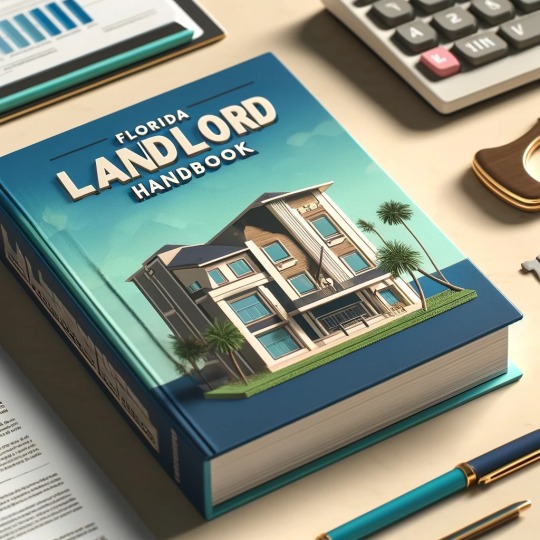
View On WordPress
#commercial eviction attorney Florida#effective property management#eviction court representation Florida#eviction legal services Florida#eviction notice filing Florida#Florida Eviction Attorney#florida eviction process#Florida landlord guide#Florida real estate laws#Florida rental market analysis#handling tenant disputes#landlord financial planning#landlord legal compliance Florida#landlord tenant lawyer Florida#landlord-tenant relationships#lease agreement essentials#lease termination lawyer Florida#legal advice for landlords#property condition inspections#property damage management#property eviction legal advice.#property maintenance Florida#property management services#real estate attorney Florida#real estate investment Florida#real estate investment tips#real estate market trends Florida#rent payment policies#rental business profitability#rental insurance Florida
0 notes
Text
Eviction, Hawaii, and a little advice
Hello, lovely listeners, and welcome back to another episode of Worn. I'm your host, Silla Quiñones, and I'm here to explore the intricate threads of labor, self-discovery, growth, and the harsh realities of poverty. Today's episode is a sobering yet important one. We'll be delving into a topic that affects countless lives across the globe, with a focus on the US – evictions and notices.
Evictions are more than just notices to move; they're about people's lives being upended. Eviction notices arrive like unexpected storms, disrupting the fragile stability of those already teetering on the edge. Imagine receiving that letter, feeling the weight of uncertainty and fear, wondering where you'll lay your head next. Today, we're diving deep into this topic, exploring personal stories, the social fabric, and potential solutions.
The first story on our radar is of the families on Maui in Hawaii.
As many of us are aware, our friends in Hawaii, specifically on the island of Maui have suffered a horrendous fire. A fire which the Hawaii power utility company has taken responsibility for starting. They had over 60,000 utility poles which were outdated from, and I quote from the Ap article on it, “its own documents described as built to “an obsolete 1960s standard,””.
it is such a horrific situation they’ve caused by not prioritizing safety for well over 50 years on the island of Maui.
To compound this horrible event, eviction notices have been circulating. Yes, there are human beings that saw this disaster unfold and decided that it would be appropriate to claim that individuals affected are “in breach” of their leases during this crisis and uproot them. It is, in my opinion, such a shameful and horrific act to be party to.
Now something incredibly important to note is that according to the Statewide Office on Homelessness and Housing Solutions of Hawaii, it is absolutely a violation of the statewide eviction moratorium in place to protect those affected in by the fires.
Evictions during times of crisis are unfortunately common but frowned upon. Upheaving those dealing directly with the aftermath of natural disasters is discompassionate and irrational. If you or someone you knows has received an eviction notice please contact the State Landlord-Tenant Hotline or Legal Aid Society of Hawaii. Both numbers will be in description, and listed on the show’s show notes on tumblr.
Contact the State Landlord-Tenant Hotline (808-586-2634) or a legal services agency, such as the Legal Aid Society of Hawaii (808-536-4302), to seek information about your rights as a tenant if you are a Maui Resident.
Evictions are not isolated incidents; they're part of a complex web of systemic issues. They reveal the chasm between those who hold power and those who are vulnerable. This issue disproportionately affects marginalized communities, perpetuating cycles of poverty that are difficult to break. This is why I cannot encourage people enough to reach out to housing advocates and seek legal representation when faced with an eviction.
Remember, after a notice to quit, if you haven’t vacated the premises, then the landlord has to file the appropriate paperwork with the local courts. A notice to quit is not a legal document, if it is written in a way to incite fear or be threatening, take photos and document it! No judge is going to look favorably on such unprofessional and often times discriminatory behavior. Follow up with the courts directly, having legal representation is often optional but judges have been known to rule in tenant favors when they have legal representation vs in cases where tenants represent themselves.
Our society needs comprehensive changes – from policy shifts to community support networks. Some places are experimenting with alternative housing models, like cooperatives and community land trusts. These innovative approaches prioritize people over profits and aim to break the cycle of evictions because evictions do not exist in a vacuum; they’re a manifestation of a broken system. Thank you for joining us on this episode of Worn. Remember, the fabric of our society is woven by the stories we share and the actions we take. Stay compassionate, stay curious, and keep unraveling the threads that bind us. Remember to subscribe and share Worn with your friends and family. Until next time, remember that no matter how worn we may feel, we are always capable of embracing our strength and rewriting our stories. Stay resilient.
References:
Eviction Prevention Resources Statewide Office on Homelessness and Housing Solutions (.gov) https://homelessness.hawaii.gov/eviction-prevention/#:~:text=I%20received%20an%20eviction%20notice,your%20rights%20as%20a%20tenant.
#maui wildfires#maui fires#maui hawaii#maui strong#maui#hawaii fires#hawaii#eviction#homelessness#landlords#poverty#podcast#worn podcast
1 note
·
View note
Text
also if you are worried about representation there are free legal services in almost every state that will represent you if you don't have the income. the land lord has very very few legal reasons to enter your apartment without your consent ESPECIALLY if you aren't there (basically water pipes bursting or fires aka things that effect the entire building) and they absolutely have no right to harass you. record what and when the incidents are and demand they contact you through legal channels.
btw: the reason this was enacted as a law is that land lords would rent to people without leases in order to be able to kick them out at any time with no notice, even if they didn't get to live in the place for the full amount they paid for. they would claim the tenant was a "squatter" and had no legal right to stay. that's why all renters sign leases. it's also why it's a REALLY good idea to make sure you are renting from the actual landlord and not subletting or just paying first and last to a guy who has no connection to the property (this happens, sometimes vacant buildings will get broken into, locks changed, and when you show up to move in the actual landlord will show up and be like???? in these cases you still have the right to go through the court system although you will probably get less time to move.) you will still get time to move but the difference is between 30 days and up to a year or two with rental assistance (aka some state or city govs will pay your back rent for you or may help pay a large part of your rent going forward.)
38K notes
·
View notes